Customer Services
Copyright © 2025 Desertcart Holdings Limited


Norman Fucking Rockwell! will be released on August 30, 2019 on Interscope Records. It is Lana Del Rey's highly anticipated fifth studio album, following four previously released instant grats, including her Alternative radio hit, "Doin' Time." Review: Taking Inventory - I’m resentful at: Elizabeth Woolridge Grant, aka Lana Del Rey The Cause: She’s written a perfect album about love and lust and codependency and recovery, one that creates an illusion of intimacy with the listener; even though I know it’s an act, it feels like it’s about me. And I know it’s not, and that I’ll never meet her, which is probably for the best, given that I’m happily married with two fantastic kids, but that in turn creates a wistful feeling of melancholy about the impossibilities of life. She sold this album under an imperfect piece of cover art—one that feeds the “I’m reaching out to you” vibe but also has a somewhat garish color scheme, and references Roy Lichtenstein rather than the titular Norman Rockwell—so it took me a while to realize that it was, in fact, the best album released in the last year or so. She’s almost eight years younger than me, but she’s already released a universally acclaimed and widely available masterpiece. Affects My: Self-esteem (fear), Security, Sexual relations My part: I need to understand and accept the unequal nature of the artist/audience relationship; despite my ego’s protests to the contrary, the connection I have with Lana Del Rey is no more substantial than the one I have with, say, Billie Holliday. Or to reference yet another excellent female songwriter, I am so vain that I do, in fact, think these songs are about me. But rather than living in self-pity that they’re not, I need to be grateful that they exist, and accept that getting this album is literally the best possible outcome for all concerned, especially myself. I’ve spent enough time in recovery from alcoholism and associated diseases that I’ve absorbed a bit of the verbiage that inevitably crops up in any group of like-minded people “organized” (a very very very loose concept in recovery) around a common purpose. So I recognize (in the words of Robert Stone) “the diction of addiction,” and can’t help spotting it in a host of art, and artist interviews. Del Rey’s spoken about quitting drinking and drugs at a relatively young age, and the lyrics here suggest she’s done that by going to some of the same types of rooms I have, and meeting the same types of people. (For one, “church-basement romances” seems like a clear nod at where many recovery meetings meet, and what many members end up trying once they’re there, for better or worse. [Either they’ve found true love—which I’ve seen—or they’re tripped up because the neurological pathways alcohol works on are also serviced by physical affection, such that desperate dry drunks will end up in flawed relationships to unconsciously feed those needs, rather than doing the hard work of recovery.] And “serving up God in a burnt coffee pot for the triad” feels like another recovery reference; making coffee for a meeting—inevitably out of some battered communally-owned pot, with group-purchased tube-containers of economy-size powdered creamer and sugar next to it—is a standard job for a newcomer who needs a weekly service commitment; “the triad” reads as a clear reference to the UNITY-SERVICE-RECOVERY triangle on a standard recovery coin. Although who knows? Maybe she’s a waitress for Chinese gangsters.) At any rate, the same qualities which have stood me well in recovery (fearlessness, trust, openness, a willingness to take a deep look at the dark corners of one’s own psyche) have evidently served Lana as well; “Is it safe to just be who we are?” she asks in a touchingly vulnerable moment on “Love Song.” It’s a common conundrum for those of us who’ve quit drugs and alcohol: it’s relatively easy to find someone to get undressed with; it’s a lot harder to find someone to let down our guard with emotionally, who will in turn respond in a healthy manner. (“All the pills that you take—violet, blue, green, red—to keep me at arm’s length won’t work,” she sings on “Cinnamon Girl,” and on “California” she talks about buying an unhealthy lover “your favorite liquor from the top shelf.” So like many of us, she’s found that there’s no shortage of unhealthy alternatives.) One hopes for Lana/Elizabeth’s sake that she’ll get to a better place, romantically. “Spilling my guts with the Bowery bums is the only love I’ve ever known,” she says on “Hope Is a Dangerous Thing…” and there were years when I would have been able to relate; the warm feeling of real recovery work (with a little artistic output on the side) for years felt more authentic and real than any romance; there’s something about cracked-linoleum church basements or dingy inner-city communal rehab rooms or jail decks reeking of body odor that can be downright magical. These songs are so consistently excellent that they get addictive; one wonders if a sober-but-somewhat-somber artist could produce them forever. But I don’t want her to keep doing the same thing over and over just to feed my unquenchable need. “Hope is a dangerous thing for a woman like me to have,” she sings on the last track, and closes with a suggestion that, for as good as all of this is, things can get better still. Hope—that real and genuine optimism, the kind that runs the risk of leading us into disappointment, or just the realization that there’s more hard work to do—is dangerous indeed. “But I’ve got it,” she says, as quietly and insistently as a prayer. I’ve got it, indeed. Review: The fans favorite Lana Del Rey album. - Great album with lots of classic hits with a great cover of a Sublime song. She makes the cover song her own

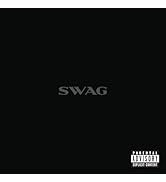
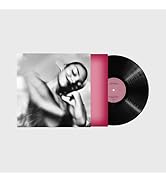
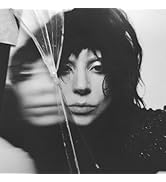

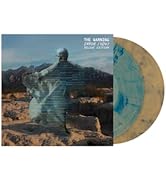
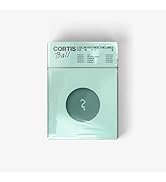
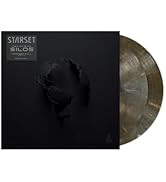


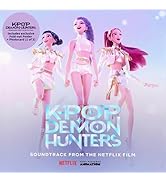



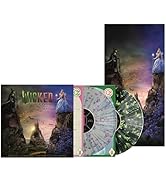
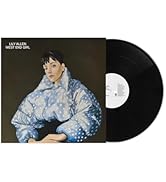

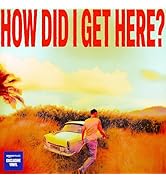

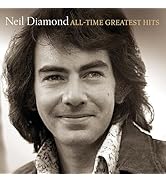

| ASIN | B07VBH59H1 |
| Best Sellers Rank | #821 in CDs & Vinyl ( See Top 100 in CDs & Vinyl ) #105 in Alternative Rock (CDs & Vinyl) #363 in Rock (CDs & Vinyl) |
| Customer Reviews | 4.8 4.8 out of 5 stars (3,065) |
| Date First Available | August 1, 2019 |
| Label | Interscope |
| Language | English |
| Manufacturer | Interscope |
| Number of discs | 1 |
| Original Release Date | 2019 |
| Product Dimensions | 5.55 x 4.92 x 0.47 inches; 3.25 ounces |
B**N
Taking Inventory
I’m resentful at: Elizabeth Woolridge Grant, aka Lana Del Rey The Cause: She’s written a perfect album about love and lust and codependency and recovery, one that creates an illusion of intimacy with the listener; even though I know it’s an act, it feels like it’s about me. And I know it’s not, and that I’ll never meet her, which is probably for the best, given that I’m happily married with two fantastic kids, but that in turn creates a wistful feeling of melancholy about the impossibilities of life. She sold this album under an imperfect piece of cover art—one that feeds the “I’m reaching out to you” vibe but also has a somewhat garish color scheme, and references Roy Lichtenstein rather than the titular Norman Rockwell—so it took me a while to realize that it was, in fact, the best album released in the last year or so. She’s almost eight years younger than me, but she’s already released a universally acclaimed and widely available masterpiece. Affects My: Self-esteem (fear), Security, Sexual relations My part: I need to understand and accept the unequal nature of the artist/audience relationship; despite my ego’s protests to the contrary, the connection I have with Lana Del Rey is no more substantial than the one I have with, say, Billie Holliday. Or to reference yet another excellent female songwriter, I am so vain that I do, in fact, think these songs are about me. But rather than living in self-pity that they’re not, I need to be grateful that they exist, and accept that getting this album is literally the best possible outcome for all concerned, especially myself. I’ve spent enough time in recovery from alcoholism and associated diseases that I’ve absorbed a bit of the verbiage that inevitably crops up in any group of like-minded people “organized” (a very very very loose concept in recovery) around a common purpose. So I recognize (in the words of Robert Stone) “the diction of addiction,” and can’t help spotting it in a host of art, and artist interviews. Del Rey’s spoken about quitting drinking and drugs at a relatively young age, and the lyrics here suggest she’s done that by going to some of the same types of rooms I have, and meeting the same types of people. (For one, “church-basement romances” seems like a clear nod at where many recovery meetings meet, and what many members end up trying once they’re there, for better or worse. [Either they’ve found true love—which I’ve seen—or they’re tripped up because the neurological pathways alcohol works on are also serviced by physical affection, such that desperate dry drunks will end up in flawed relationships to unconsciously feed those needs, rather than doing the hard work of recovery.] And “serving up God in a burnt coffee pot for the triad” feels like another recovery reference; making coffee for a meeting—inevitably out of some battered communally-owned pot, with group-purchased tube-containers of economy-size powdered creamer and sugar next to it—is a standard job for a newcomer who needs a weekly service commitment; “the triad” reads as a clear reference to the UNITY-SERVICE-RECOVERY triangle on a standard recovery coin. Although who knows? Maybe she’s a waitress for Chinese gangsters.) At any rate, the same qualities which have stood me well in recovery (fearlessness, trust, openness, a willingness to take a deep look at the dark corners of one’s own psyche) have evidently served Lana as well; “Is it safe to just be who we are?” she asks in a touchingly vulnerable moment on “Love Song.” It’s a common conundrum for those of us who’ve quit drugs and alcohol: it’s relatively easy to find someone to get undressed with; it’s a lot harder to find someone to let down our guard with emotionally, who will in turn respond in a healthy manner. (“All the pills that you take—violet, blue, green, red—to keep me at arm’s length won’t work,” she sings on “Cinnamon Girl,” and on “California” she talks about buying an unhealthy lover “your favorite liquor from the top shelf.” So like many of us, she’s found that there’s no shortage of unhealthy alternatives.) One hopes for Lana/Elizabeth’s sake that she’ll get to a better place, romantically. “Spilling my guts with the Bowery bums is the only love I’ve ever known,” she says on “Hope Is a Dangerous Thing…” and there were years when I would have been able to relate; the warm feeling of real recovery work (with a little artistic output on the side) for years felt more authentic and real than any romance; there’s something about cracked-linoleum church basements or dingy inner-city communal rehab rooms or jail decks reeking of body odor that can be downright magical. These songs are so consistently excellent that they get addictive; one wonders if a sober-but-somewhat-somber artist could produce them forever. But I don’t want her to keep doing the same thing over and over just to feed my unquenchable need. “Hope is a dangerous thing for a woman like me to have,” she sings on the last track, and closes with a suggestion that, for as good as all of this is, things can get better still. Hope—that real and genuine optimism, the kind that runs the risk of leading us into disappointment, or just the realization that there’s more hard work to do—is dangerous indeed. “But I’ve got it,” she says, as quietly and insistently as a prayer. I’ve got it, indeed.
T**9
The fans favorite Lana Del Rey album.
Great album with lots of classic hits with a great cover of a Sublime song. She makes the cover song her own
T**E
My favorite lana del rey album
Great purchase. The vinyl looks amazing, the sleeves came intact, and the quality sound is outstanding.
K**N
Normal Expletive Rockwell?
Truly is the best next American record
M**Z
GREAT ALBUM!
Came in perfect condition :) I love it !
C**I
Good quality
Sounds phenomenal!
J**O
Best album of the decade! Gorgeous vinyl !!
It arrived really fast and in perfect conditions to Colombia. The gatefold design is just the credits tho and there's no lyrics or booklet, but amaizing either way
P**A
excelenteeee llego a tiempo y en perfecto estado!!! te amo lana
R**H
Absolutely incredible. Purchased it on cassette in 2020, crazy yes but played back on my WM-D6C the quality of the master is crystal clear, beautiful recording. Beautifully sung and songs that seem to take you along until all of a sudden you're at the end and the cassette player goes "cuh-chunk!" to signal the end of the tape bringing you out of your daze. LDR has a voice that can make your entire world disappear into nothing but the turning reels of tape in front of your eyes and the audio coming through the headphones. Would recommend purchasing.
I**R
The case is a bit delicate and could crack easily, so store it properly. Otherwise the sound quality from the tape is about average for what's done today. More of a collector's item.
B**K
First time listening to Lana , I really enjoyed this album. I have heard singles of hers in the past, but they never really peaked my interest , this is a lovely change though
S**R
arrived well packaged, looks cool, sounds great. It's fun to see artists releasing new music on tapes again.
D**Z
Tanto el álbum como el cassette son perfectos, pero Amazon debería cuidar más el envío de los productos ya que llegó rota la caja del cassette.
Trustpilot
5 days ago
2 weeks ago